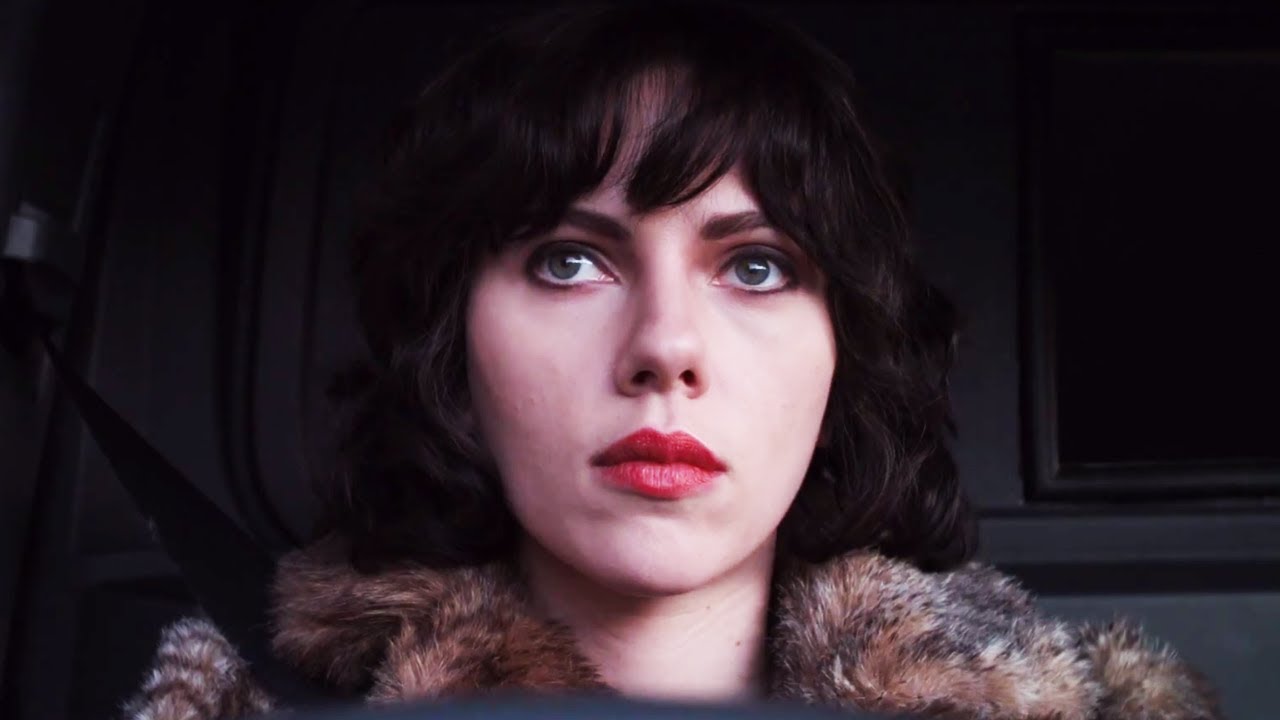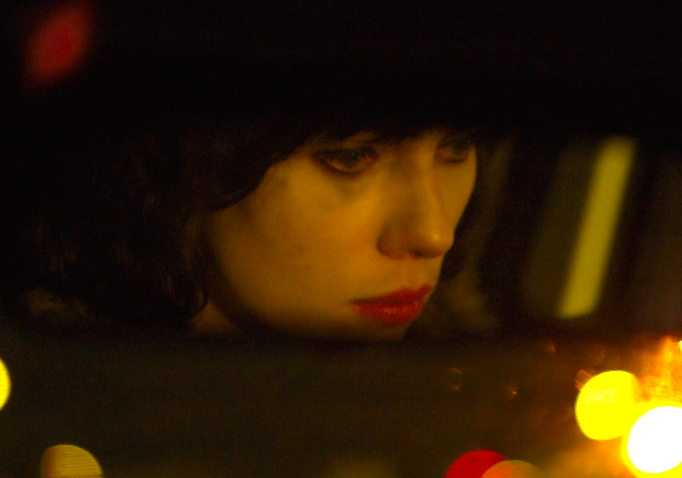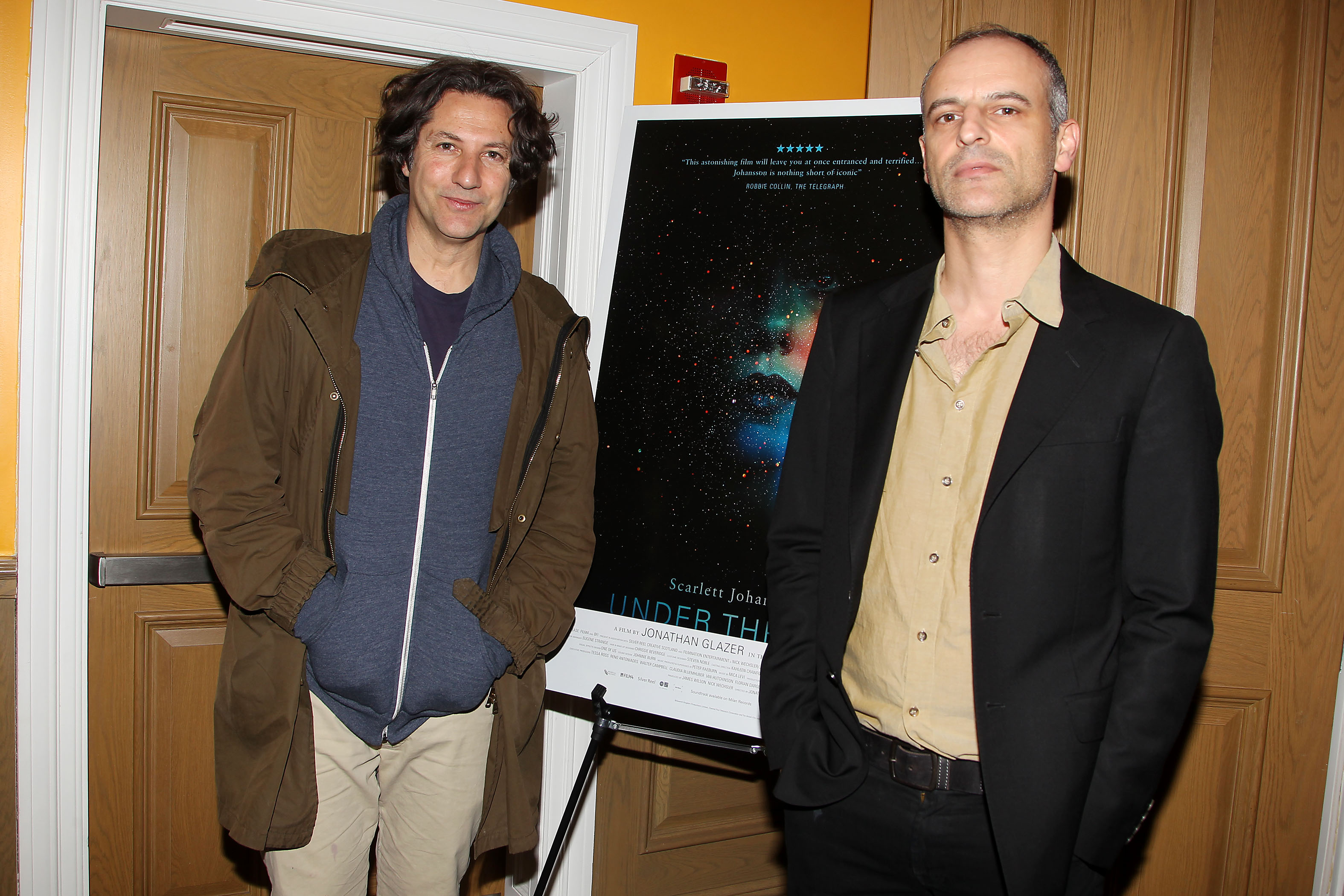By providing your information, you agree to our Terms of Use and our Privacy Policy. We use vendors that may also process your information to help provide our services. This site is protected by reCAPTCHA Enterprise and the Google Privacy Policy and Terms of Service apply.
Jonathan Glazer on Getting ‘Under the Skin’ of Scarlett Johansson and Why He Reads His Bad Reviews
Nigel M. Smith


It’s been a decade since iconic music video helmer Jonathan Glazer‘s
entrancing sophomore feature “Birth,” a film that drew both boos and applause at its world premiere in Venice in 2004. That film has since amassed a cult following. Glazer’s highly anticipated third feature “Under the Skin” drew the same mixed response in Venice last year following its Telluride debut, and like “Birth,” his new work is sure to be analyzed and argued over for years to come.
READ MORE: How DP Daniel Landin Captured Scarlett Johansson’s Alien Nature in ‘Under The Skin’
Very loosely based on Michael Faber’s acclaimed sci-fi novel of the same name, “Under the Skin” centers on an alien who takes on the comely shape of Scarlett Johansson in rural Scotland to hunt down human prey for mysterious purposes.
With the film finally opening Stateside today, Indiewire caught up with Glazer to discuss casting Johansson, the gap between “Birth” and his latest and dividing audiences.

It’s been ten years since “Birth.” Talk about the pressure you felt at Telluride when you first unveiled “Under the Skin.”
The truth is when you make a film, you make something that you hope will be very strong, but you do get to a place where you become so, sort of… you sort of disappear into a dark hole. It’s about you and the people that you are working with most directly and the people you are sharing that experience with and there is something in me that thinks once that’s finished, that will be that — in other words, that you won’t show it.
It becomes…there is so much sort of solitude. It’s such a kind of concentrated group of people. You’re in a bubble for such a long period of time. I remember when we finished the final, final mix of the soundtrack and the music. The sound took months and months, and the music took months and months and the mix — we mixed and we remixed and we came back and we remixed. But when we finally… it was just about, five people in a room, or six people: me and Jim (Wilson), the producer, Richard Lloyd, the post-production supervisor, Mica (Levi), the composer, Peter Raeburn, the music producer and Johnnie Burn, the sound designer — it was just a bunch of us in a room, in a mixing theater. We had watched the film, we had done all our notes; Pete had notes, Mica had notes, I had notes, Johnnie applied those notes, we’d watch it again. More notes, more notes, watch it again. More notes, more notes.. and then we got to the point where there were no more notes, we had no more notes, and we all sort of sat there like, well that’s it then. That comes after years. So it’s a strange moment to think, well that’s it then. What you don’t think is, what seems most natural in that moment is that you’ll just turn the projector off, lock the door and go back to your life, do something else. It’s sort of strange it doesn’t occur to you, or it certainly didn’t occur to me, that we would be showing the film beyond those four walls. Somehow, of course it does, of course you know you’re going to, but it just isn’t in your thinking. So then when it’s like, okay now we’re going to screen the film and now these people want to see it and now we’re going to enter it into this festival… it’s alarming actually that suddenly this thing is going to be seen by other people. Sorry, a long-winded answer to your questions.

No, that was great.
It’s alarming to show the film, in a way, and peculiar to talk about it. The interview, what we’re doing talking about this, it’s an unnatural thing, so it just feels… it’s all strange.
The film’s been released in parts of Europe and has played at festivals throughout North America, but still has yet to open Stateside theatrically. Do you still feel like you’re living in a bubble, given that so many of your fans have yet to see the film?
I do. We’re still here talking about it. I’m still in this film. It’s strange, working on it I can do, working on it is fine, it’s the talking about it that is so difficult. I can’t manage expectations, it’s just not my role to — so I hope some people will connect with it and others won’t and that’s just as it is and should be. We certainly didn’t try to make a film that would ingratiate itself with anyone.
We were just trying to fulfill what we set out to make. Like it or loathe it that was… not to lie to people, not to manipulate people, but to present the case of the film. Watch her witness us.
Both “Birth” and “Under the Skin” drew boos and applause in Venice. Do divisive reactions excite you as a filmmaker?
If you’re going to start reading reviews then you’ve got to read the bad ones, you can’t just go show me the good ones. It’s absurd to do that. When I started looking at reviews for “Birth,” of course some were scathing, people loathed it. It was a nasty, nasty response. You can’t pretend that that doesn’t affect you, it does. It takes chunks out of you on some level. I realized soon after that it’s important not to confuse something that is good with something that is well-received. They are not the same thing and equally something bad. When I kind of understood that, then the process for me became much easier and I could remove myself from caring about it. You’re kind of sensitive to criticism, but you’re also sensitive to praise so you have to kind of push that away and get on with what you’re going to do next. So I think I was very committed to continue on the path I was going. I wanted to keep going on that road. I lost more and more people along the way, in other words I had a smaller audience along the way then so be it. As long as there was someone out there prepared to let me make films the way I felt like I wanted to make them, then I would carry on doing that, with an ever-dwindling audience perhaps.

But that didn’t worry me — I wasn’t in it for that. I like the collaborations, I like the journey, I like the exploration, I like the mental puzzle, I like all those. I like having an obsession like that and seeing it through. Probably the most equivalent thing I’ve come across is this: I have a couple of friends who are musicians who, when they make an album, they don’t take it lightly, they’re very experimental. To me, it feels a bit like that. It feels like you’re trying to kind of almost bypass the intellect. You’re actually trying to communicate on a level of inner-consciousness or something — the way maybe music does, or painting. So I like that pursuit.
So much has been made of how your films look and sound, but it’s also worth noting you have a way with actors. Nicole Kidman was mesmerizing in “Birth,” and the same is true of Scarlett in this. What’s your secret?
I take people as they are. If somebody is an actor they are there to be the character in this film that they want to be. It’s about how I believe that that actor is that character and how do they get to that place. The rest of it — the celebrity, the adulation that comes with them into the room, previous successes and stuff — I’ve got no time for that because that doesn’t have any place in the world. And if you let that into the room, that will affect the way you work with them and you’ll actually take them as a finished product. You’ll be like, “Okay well here’s Nicole and she’s going to sit there. Well she’s done all that great work so ‘Action!’ Fantastic. That was great.'” It’s not like that at all. You start from the beginning. What are we going to do together? What are we here to do together? And that’s the approach for me, it’s just that. And I think it’s trust, a huge degree of trust. It’s allowing vulnerability. It’s being vulnerable with each other. It’s giving one another the right to fail. It’s all of that.
You say that you have no time for “celebrity,” but your last two features feature two of the biggest celebrities in the world in the lead roles. Do you get a kick out of breaking down their public image, and starting from scratch?
Both Nicole and Scarlett were in disguise really, on some level, wearing wigs. Nicole played a character that was in mourning really. With Nicole, we talked about de-sexualizing her image and making it very much like she had just shut down. She had tried to make herself.. she had sort of closed her wings. But at the end of the day sometimes I would see her come out of the dressing room, she would take her wig off and she would be back to Nicole Kidman. And I remember occasionally thinking, “Oh fuck, there’s Nicole Kidman.” You’re just in the world to such an extent that that isn’t in your thinking. And then there it is walking out the dressing room at the end of the day getting into a car. It’s different people and actually that’s a good thing because it means that what she’s doing is working.

And with Scarlett, the same with Scarlett. But my interest in those actors is that they are both fantastic actors and I think I’m going through a period of being very interested in working with female characters. Women are very, very interesting. I’ve always loved those sort of female characters. In films I’ve always been attracted to the Liv Ullmans of Bergman, Hanna Schygulla in Fassbender films. These searing kind of performances and appearances — they’ve always really captivated me. And I think there is also something very interesting about also, people when they are at the top of their game in their careers, stepping out of that machinery, that circus, and doing something so far away from their normal experience. It’s a very exciting fuel within what we’re trying to do. It’s very powerful.
There is a long tradition of Hollywood actors who have come to Europe for instance, and made very unusual films with European directors. It’s been going on forever. I think it’s healthy, I think it’s good. I think it’s good to bring actors, an actor like Scarlett, into a movie like “Under the Skin.” Everybody goes up a notch. She goes up a notch, we go up a notch. People are exposed to things that they wouldn’t see otherwise because they are going in they are thinking they are going to see Scarlett. They may be completely disappointed that it’s not what they expected, but I think it’s good to keep things moving forward like that.

By providing your information, you agree to our Terms of Use and our Privacy Policy. We use vendors that may also process your information to help provide our services. This site is protected by reCAPTCHA Enterprise and the Google Privacy Policy and Terms of Service apply.

















